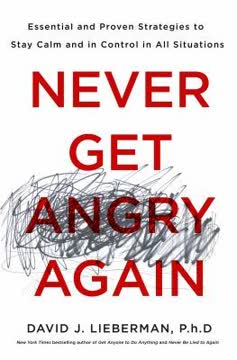Key Takeaways
1. Fathers' Influence Starts Before Conception
The same sort of reasoning suggests that a father would have little or no impact on the health of the fetus, with which he has no physical connection whatsoever. But that reasoning is faulty: research is showing that a father’s environment, his behavior, and even his appearance can have a substantial effect on fetal health—and on the health of his grandchildren.
Paternal Legacy. A father's health, lifestyle, and environment before conception significantly impact his offspring's health, challenging the traditional view that only mothers influence fetal development. This influence extends beyond genetics, encompassing factors like diet, exposure to toxins, and stress levels. Studies on the Överkalix parish in Sweden revealed that grandfathers' nutrition during adolescence affected their grandchildren's longevity and susceptibility to diseases like diabetes and heart disease.
Epigenetic Changes. These effects are mediated by epigenetic changes, which alter gene expression without changing the DNA sequence itself. For example, a father's high-fat diet can lead to metabolic disorders in his daughters, even if the daughters themselves maintain a healthy diet. Similarly, stress experienced by a father can be passed down to his offspring, increasing their risk of anxiety and depression.
Environmental Toxins. Exposure to toxins and pollutants can also induce epigenetic changes in sperm, leading to adverse health outcomes in future generations. Research has linked paternal occupations involving exposure to chemicals, such as petroleum workers and printers, to a higher risk of birth defects in their children. These findings underscore the importance of paternal health and lifestyle choices in shaping the well-being of future generations.
2. Genetic Tug-of-War Shapes Development
Maternal genes have a substantial interest in the mother’s well-being and survival. Paternal genes favor greater allocation of maternal time and effort to their particular child.
Imprinted Genes. Fathers and mothers contribute distinct genetic imprints that influence offspring development, challenging Mendel's laws of inheritance. These imprinted genes, though few in number, play a crucial role in fetal growth, placental development, and even brain function. The discovery of imprinting revealed a complex interplay between maternal and paternal genes, where each parent's genes compete to maximize their reproductive success.
Kinship Theory. David Haig's kinship theory explains that paternal genes tend to promote fetal growth and resource extraction from the mother, while maternal genes act to conserve resources for future offspring. This genetic tug-of-war can manifest in various ways, such as the fetus manipulating the mother's blood sugar levels or blood pressure.
Mental Illness. Disruptions in the balance of imprinted genes in the brain have been linked to mental illnesses like autism and schizophrenia. For example, an over-expression of paternal genes has been associated with autism, while an under-expression has been linked to schizophrenia. This suggests that the genetic battle of the sexes extends to the brain, influencing behavior and susceptibility to mental disorders.
3. Pregnancy Hormones Impact Fathers Too
As much as we pushed … for detail, though, talk about physical symptoms usually ended quickly, while talk about psychological and relationship changes could have gone on long into the night.
Couvade Syndrome. Men experience hormonal and emotional changes during their partners' pregnancies, mirroring some of the physical and psychological shifts in women. This phenomenon, known as couvade, can manifest as weight gain, nausea, fatigue, and emotional changes. Studies have shown that men's testosterone levels decrease while prolactin and cortisol levels increase during their partners' pregnancies.
Hormonal Shifts. These hormonal shifts are believed to prepare men for fatherhood by promoting nurturing behavior and reducing competitiveness. The closer and more intimate the partners are during pregnancy, the more the man's hormonal shifts parallel those of his partner. This suggests a biological link between maternal and paternal hormones, highlighting the importance of shared experiences and emotional connection during pregnancy.
Mental Health. Depression in fathers during pregnancy can negatively impact their children's development, just as maternal depression does. Children of depressed fathers are at increased risk of behavioral and emotional problems, as well as language delays. This underscores the importance of addressing mental health issues in both parents during pregnancy and early childhood.
4. Animal Studies Reveal Paternal Instincts
When I assess a rodent, I get the real deal—pure, unadulterated, raw behavior. When I’m working with rats, I ask a question and get the answer.
Mouse Models. Animal studies, particularly with mice, provide valuable insights into the biological basis of paternal behavior. Researchers use different mouse species, such as the monogamous California mouse and the promiscuous deer mouse, to study the genetic and hormonal factors that influence fathering. These studies have revealed that good fathering is associated with specific brain changes, including reduced activity in stress-related areas and increased activity in areas related to bonding and reward.
Hormonal Influences. Hormones like prolactin, oxytocin, and vasopressin play a crucial role in regulating paternal behavior in animals. For example, male California mice with higher prolactin levels are more responsive to their pups' cries. Similarly, vasopressin is essential for pair bonding and paternal care in prairie voles.
Environmental Factors. The environment also plays a significant role in shaping paternal behavior. Studies have shown that male California mice are more likely to provide parental care when their presence is critical for offspring survival, such as in cold environments. This highlights the adaptive nature of paternal behavior and its dependence on ecological context.
5. Infants Sculpt Fathers' Brains
Fathers can hardly be expected to maintain a belief in their importance when they are continually being told of their irrelevance, other than as economic supporters of the family unit.
Challenging Attachment Theory. Research has challenged the traditional view of attachment theory, which primarily focused on the mother-infant bond. Studies have shown that infants form attachments with both parents and that fathers can serve as secure bases for exploration and interaction. Fathers and mothers both show activity in the prefrontal cortex in response to looking at pictures of their infants or hearing their cries.
Brain Plasticity. Fathers' brains undergo significant changes in response to their infants, demonstrating the plasticity of the male brain. These changes include increased activity in brain regions associated with motivation, mood, and involvement with their babies. This suggests that fatherhood is not merely a social role but also a biological transformation that shapes men's brains.
Hormonal Responses. Fathers experience hormonal changes in response to their infants, including a rise in prolactin and cortisol and a drop in testosterone. These hormonal shifts are believed to promote nurturing behavior and strengthen the father-infant bond. The hormones seem to be powerful drivers of men’s behavior during pregnancy.
6. Fathers Boost Language and Social Skills
When fathers used more words with their children during play, children had more advanced language skills a year later.
Language Development. Fathers play a unique role in children's language development, often using a broader vocabulary than mothers, which exposes children to new words and concepts. Studies have shown that fathers' education and their use of vocabulary when reading picture books to their children are significantly related to the children's expressiveness and use of advanced language.
Social Competence. Fathers' playfulness and encouragement of risk-taking contribute to children's social competence and ability to navigate unfamiliar situations. Children with engaged fathers tend to be more popular among their peers and have an easier transition to school.
Emotional Intelligence. Fathers' involvement in children's lives is linked to their emotional intelligence and ability to handle stress. Children who have warm relationships with their fathers are more likely to develop empathy and resilience.
7. Teen Years: Father's Role Evolves
When dad is absent, it basically provides young girls with a cue about what the future holds in terms of the mating system they are born into.
Early Puberty. Father absence during childhood has been linked to earlier puberty and increased sexual risk-taking in daughters. This is thought to be an evolutionary adaptation, where girls from unstable families accelerate their reproductive strategies to maximize their chances of having offspring.
Behavioral Problems. Paternal depression has been linked to conduct problems or hyperactivity in their children three years later. Children of fathers who have major depression can be eight times as likely as others to have behavior problems, and thirty-six times as likely as other kids to have difficulties dealing with their peers.
Long-Term Impact. The way fathers treat their adolescents can have long-lasting consequences, stretching into adulthood. Teenagers who feel accepted by their fathers are more likely to develop positive personality characteristics, such as independence, emotional stability, and a positive worldview.
8. Older Fathers Face Unique Risks and Rewards
We were absolutely convinced it was real, but other people didn’t think it was.
Increased Risks. Children of older fathers face an increased risk of certain genetic disorders, including autism, schizophrenia, and dwarfism. The risk of these disorders rises with each passing year of the father's age, due to the accumulation of genetic mutations in sperm.
Genetic Mutations. The children of older fathers have a particular genetic characteristic associated with longer life. And so do their children—that is, the grandchildren of the older fathers. The likelihood of longer life extends across at least two generations.
Informed Decisions. Despite the risks, older fathers often provide more economic and social resources to their children. It's important for older men to be aware of the potential risks and rewards of fatherhood so they can make informed decisions about family planning.
9. Fathers' Actions Speak Louder Than Words
If you can provide evidence that the offspring are healthier or better off when the father is there, then it’s adaptive for him to be there.
Direct Care. Fathers who provide direct care to their children, such as feeding, grooming, and playing, have a greater impact on their development than those who are merely present. This is particularly true in challenging environments, where fathers' involvement can significantly improve children's chances of survival.
Emotional Support. Fathers who are emotionally engaged with their partners and children create a more stable and nurturing family environment. This emotional support can buffer children from the negative effects of stress and adversity.
Role Modeling. Fathers serve as role models for their children, influencing their behavior, values, and attitudes. Children who have positive relationships with their fathers are more likely to develop healthy social skills and emotional intelligence.
10. The Family System Needs Father's Active Role
If our genes disagree amongst themselves, I think the self is the arbiter among all these competing agendas.
Interconnectedness. The family functions as an intricate system, where each member's actions and behaviors affect all the others. Fathers are an integral part of this system, and their involvement has a ripple effect on the entire family.
Coparenting Alliance. A strong coparenting alliance between mothers and fathers is essential for children's well-being. When parents work together as a team, children show fewer signs of stress, marital relationships are stronger, and children have better relationships with their peers.
Challenging Stereotypes. It's important to challenge inaccurate and dismissive stereotypes of fathers and recognize their unique contributions to their children's lives. By promoting positive images of fatherhood, we can encourage more men to embrace their roles as active and engaged parents.
Last updated:
Review Summary
Do Fathers Matter? receives mixed reviews, with an average rating of 3.59/5. Readers appreciate the scientific research presented on fathers' biological and psychological impact on child development. Some find it informative and eye-opening, while others criticize it as dry or biased. The book challenges misconceptions about fathers' importance, covering topics like genetics, hormonal changes, and long-term effects on children. Critics note a focus on animal studies and a lack of depth on same-sex or single-parent families. Overall, it's seen as a valuable contribution to understanding fatherhood's significance.
Similar Books










Download PDF
Download EPUB
.epub digital book format is ideal for reading ebooks on phones, tablets, and e-readers.





